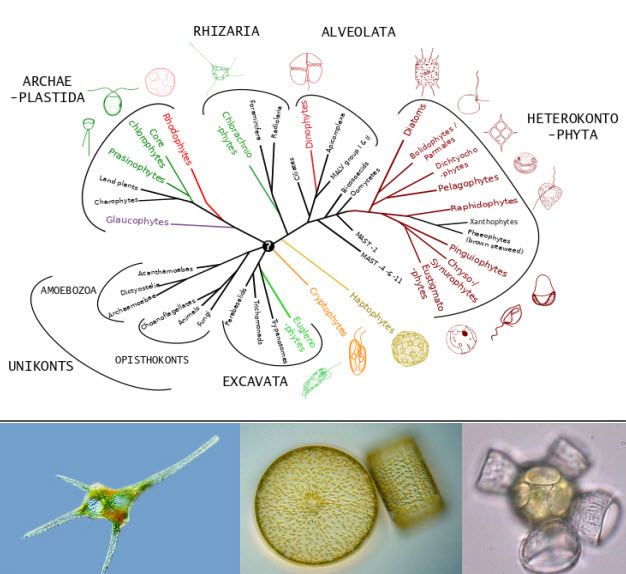Aim
Rapidly accumulating environmental sequencing data have revealed that eukaryotic microbes are far more diverse and complex than previously thought. However, meta-barcoding and meta-genomics surveys are severely limited by the fact that the majority of environmental sequences do not match a sequence with associated phenotypic/taxonomic information in reference databases. Phytoplankton, a polyphyletic group of single-celled photosynthetic organisms that play key roles in aquatic food webs and global biogeochemical cycles, comprise an important part of this undescribed diversity. PHENOMAP will address this major “phenotype gap” for marine phytoplankton by undertaking targeted phenotypic description of key cryptic lineages. The work plan integrates a suite of state of the art methods that will be applied to two outstanding existing resources: the Roscoff Culture Collection, which is the largest and most diverse service collection of living microalgal strains in the world, and the Tara protist sample collection that contains over 15,000 fixed plankton samples from the worldwide Tara Oceans expeditions (2009-2018). Additional targeted sampling at 3 French marine stations will complement these resources. Phenotypic analyses will include light, fluorescence and electron microscopy for both live and fixed samples, as well as photosynthetic pigment analysis for cultures. For fixed samples, fluorescent in-situ hybridisation will be used to target cells belonging to the most abundant cryptic environmental lineages. Genetic barcoding of morphologically identified single cells isolated from fixed and live samples will complete the experimental strategy. We aim to formally describe at least 100 new taxa (including many high taxonomic rank lineages) and link genotypic to phenotypic information for hundreds of additional existing species, adding significant value to integrated community databases (PR2, PhytoRef, UniEuk, Ecotaxa) that are increasingly central to studies on phytoplankton biology, ecology and evolution. Widespread dissemination of scientific outputs and development of innovative educational and outreach resources is integral to the PHENOMAP approach.
Partners
- Station Biologique de Roscoff RCC (Ian Probert, Pris Gourvil, Daniel Vaulot)
- Station Biologique de Roscoff UMR7144 (C. de Vargas, S. Romac)
- LERBO, IFREMER, Concarneau (Nicolas Chomerat, K. Mertens)
Funding
- ANR France
